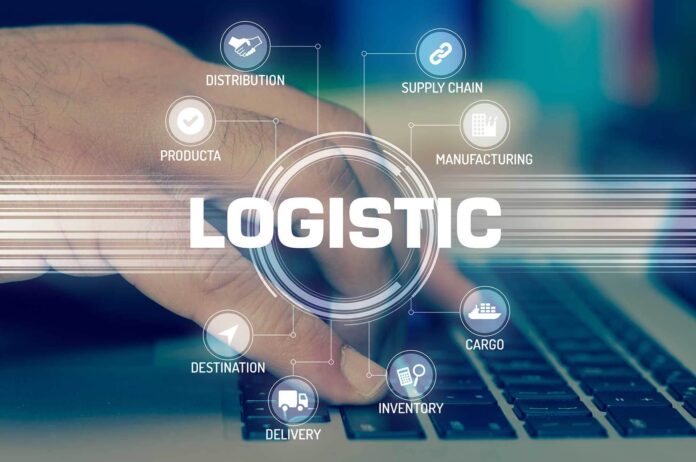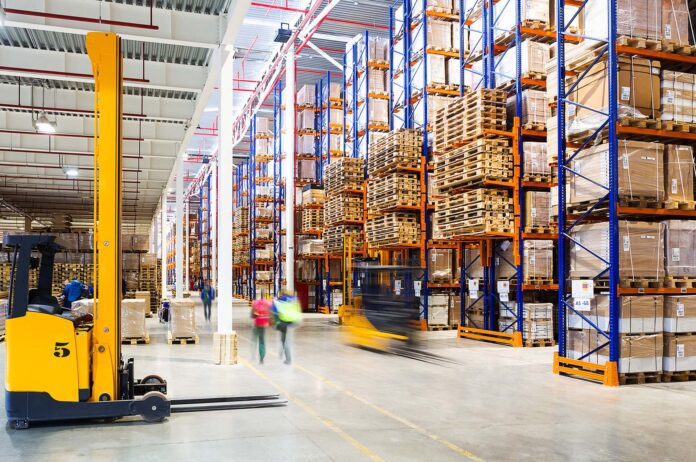Logistics is a critical part of a business. What would you do with a finished product if you don’t know the best way to transfer it to the consumers? Naturally, all your efforts would go in vain. So, it is vital to employ high-quality and efficient logistics administration that cuts down overhead expenses by automating and optimizing the tasks, which is possible by using reliable logistics systems.
It also helps manage inventory standards and deploy methods to determine demand and supply. Besides efficiently providing goods and services to consumers, it also meets their requirements in a cost-efficient manner.
However, factors like poor weather conditions, social disturbance, geopolitical turmoil, demand shifts, and labor shortages can influence the logistics of a firm to a great extent. Such pain points have existed in the past, and are likely to occur in the future. So, how can you curb them?
This blog will discuss the ways technology helps your business logistics run more smoothly and efficiently in times of great turmoil.

1. It Efficiently Uses the Data
Organizations usually possess a vast quantity of data but often don’t know how to use it to their advantage. That’s where technology comes into play. Efficient software solutions help a business efficiently utilize the data to help them reach more people and make more sales. It also provides insights to find any root cause of friction in the logistics system.
Instead of running the inventory, production, order management, and shipping processes in isolation, a firm must actively use logistics software to keep track. Utilizing technology will help a business collect helpful insights from all processes to monitor shipping in real-time and make necessary adjustments.
2. It Follows Process-Mining
Businesses are increasingly using process knowledge powered by artificial intelligence in their supply chain management to forecast demand, determine purchase lead time, and make better plans. It is not just a way to reduce expenses, but it also helps boost operational efficiency and strengthen operational security.
The continuous flow of information between the device and a logistics provider helps smoothen the process. Some companies are employing robots in their warehousing facilities to work in collaboration with human beings, eliminate duplicate work, and offer labor during shortages. It is more sophisticated with gathering, packing, reporting, and providing.
AI-powered software is being increasingly used in almost all processes to cut down the load on humans and save money. One can also use it as a predictive tool to identify demands and avoid overstocking. If you’re hiring a software development partner, ensure your visions align and they are flexible with your choices.

3. It Offers Huge Data Analytics
Supply chain management offers a load of data to a firm to use for its interest. The flood of the data offered by it includes supplying raw materials to introduce structural adjustments and any improvements across networks. This extent of data analytics offered by technology lets a firm optimize its processes, forecast demands, eliminate risks, and highlight new ways of monetizing the supply chain.
Data analytics software helps a firm improve its position by reducing warehousing costs and delivering products closer to the market that needs them. Some firms are even employing self-driving automobiles to decrease the high turnover of drivers on long journeys and leave less carbon footprint.
4. Better Warehouse Management
With the sudden boom in the e-commerce industry, the demand for warehousing facilities has also increased. It is a significant piece of the logistics handling procedure that firms are increasingly investing in. But since these spaces are so big and are full of different products, they need constant supervision and administration.
Since it is impossible for a human to track warehouse items, business logistics can do the job for them. It can efficiently supervise the stock of a warehouse by arranging the inflow and outflow from the facility on behalf of the firm. Logistics software is also perfect for regulating the storehouse and internal reserves to avoid under-stocking and overstocking.
A firm must choose a software development partner that provides expertise, helps them in every stage, successfully handles project management, delivers timely solutions, and manages money as if it is their own.

5. Smooth Transport Facilities
Transportation is a critical piece of supply chain management as it connects the firm with its consumers. It has become more critical due to e-commerce systems as consumers expect their orders to deliver quickly. It has given rise to the need for on-the-go storage solutions and advanced vehicles to create better transport solutions suited to today’s fast-paced environment.
Reliable transport management software lets a business pick better routes, track shipments in real-time, and collect crucial data to deliver the orders in the least possible time.
Firms can also use customized transport management software to speed up their business and offer better solutions suiting each company’s requirements. Since these solutions are tailor-made they let a firm make the most of advanced features and deliver the goods safely and efficiently.
6. It Preaches Sustainability
To remain in the competition for a long time, a firm must know how to build a sustainable supply chain, especially during inflation. Inflation is a drastic event causing many firms to shut down their business. But companies can relieve the pressure with the help of sustainable supply chain approaches offered by top-quality logistics software solutions providers.
Such approaches help lower the expense of emissions and waste while expanding the gains via consumer loyalty. When a business learns how to optimize logistics with machine learning, it will fulfill deliveries on time to encourage customers to return to them.

The Bottom Line
Technology has helped improve the quality of business logistics and transport to a great extent today. It uses cloud data systems to back up vital data, blockchain to provide real-time updates, app development for better transport and logistics services, and many other tools to simplify the process of efficiently delivering finished goods to consumers.
Hopefully, this blog helps you understand how technology has emerged as a solution source for the world’s toughest challenges. Before you finalize the software development partner, ensure you both completely understand and agree upon the vision and price to build more transparent, efficient, and sustainable supply chains.









